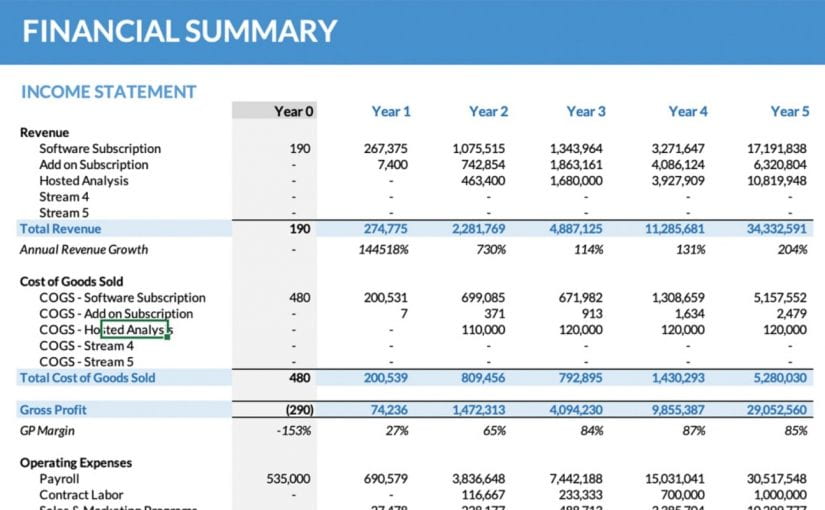If you have built a startup of your own, then you must have given considerable thought to the following questions,
- Do you want to create a financially sustainable business?
- Is there any requirement for funding?
- Do you want to avoid getting bankrupt?
If you have given thought to these questions, you must have a Startup Financial Model. We will now be taking a closer look at some of the business financial fundamentals for entrepreneurs that would prove to be beneficial for initiating a startup.
Business Finance Fundamentals for Entrepreneurs
Let us take a look at some of the business finance fundamentals concerning startup financial model,
- Costs and Revenues –One of the most vital points concerning the startup financial model is keeping accurate track of your expenses and revenues. As a startup leader and an entrepreneur, every transaction must be recorded, and they must be aware of every penny.
- Cash –As an entrepreneur, it is vital to have official records of cash spending. It will ensure that you will have records of the total number of spending carried out each year for your business. Two of the valid methods for documenting this is, filling reimbursable cheques and making a note of petty cash records. It is synonymous with the point mentioned above, but this point refers to cash amounts spent rather than bank transfers.
- Inventory –Another one of the business fundamentals of a startup financial model is keeping records of the stock you possess. It will ensure that you have afore cast of the coming year through the latest trends, prevent any misplaced products and keep your inventory holdings to a minimum. You must keep written records of purchased dates, amount of stock, cost price, selling price, etc., of all the inventory. Along with this, hold both personal and business expenditure separate.
- Accounts Payable and Receivable –As an entrepreneur, you must keep track of the money you owe and the ones you owe to others. Maintaining records of it is excellent business finance fundamental to have, and it will help you drive a successful startup financial model. Some of the information you can note in this aspect includes the date of invoice, terms, dates, balances paid or due, and information concerning clients.
- Payroll/Employees –If you hire an employee for your startup, you need to file tax returns and pay them monthly salaries per every country’s norms. If an employee is from the United States, startup entrepreneurs need to maintain W4 and I-9 forms. You are responsible for maintaining information on any withholdings, unemployment records, and other compensation records. You can do it yourself, or you can hire an expert with appropriate experience to do so. It is a good practice and quite beneficial for a flourishing startup financial model.
Conclusion
Having a successful startup financial model means that your business finance fundamentals are solid. The points mentioned above give you a holistic overview of what you must look out for as a startup owner. Along with this, having business foresight is essential as well, since this will help you keep track of any impending competition, plus, to look out for any potential partnerships beneficial for your business. As an entrepreneur, you should reach for the skies and keep your toes to the ground for every possible eventuality.
Summary: Having a successful startup financial model means that your business finance fundamentals are solid. One of the most vital points concerning the startup financial model is keeping accurate track of your expenses and revenues. As a startup leader and an entrepreneur, every transaction must be recorded, and they must be aware of every penny.
